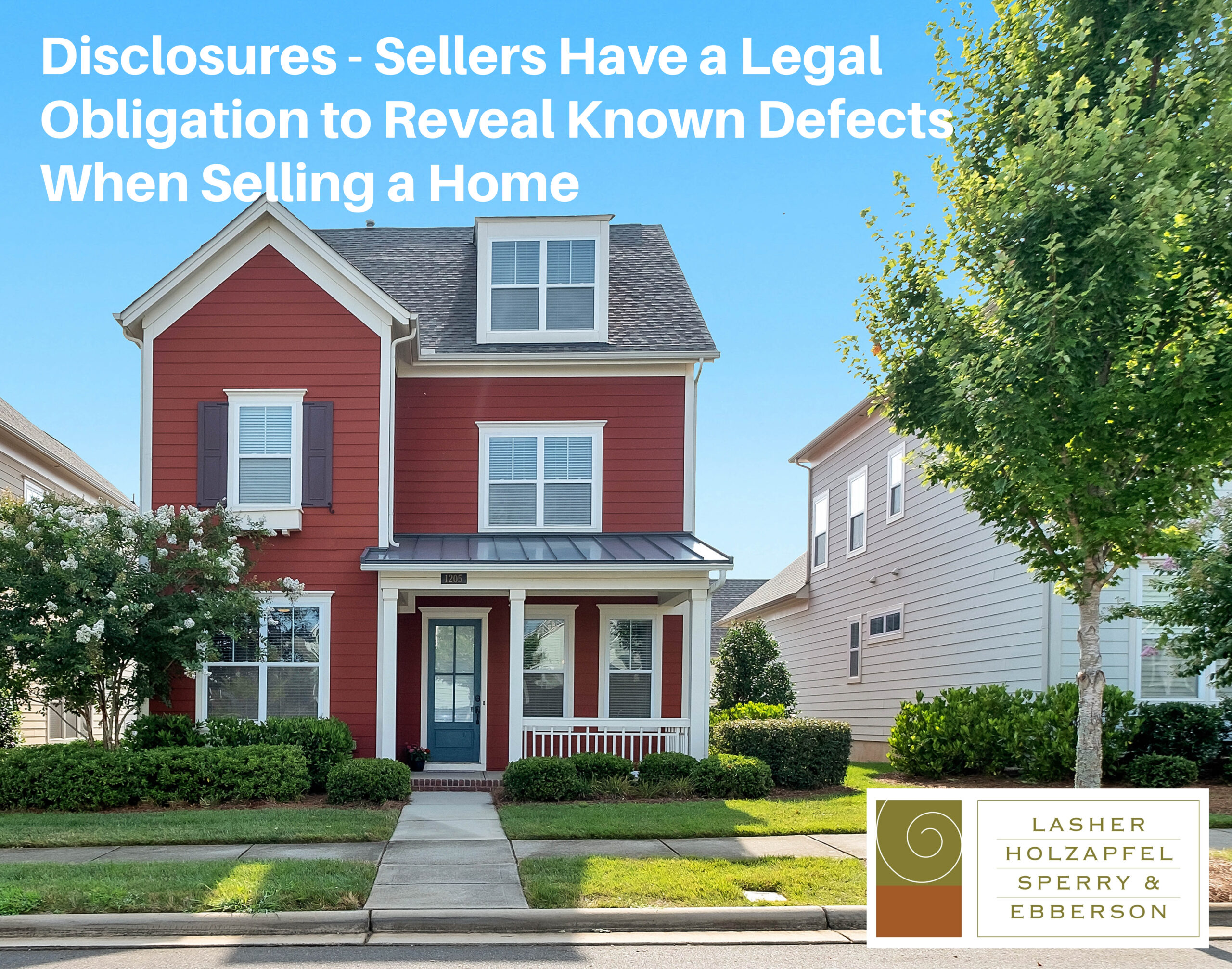Disclosures – Sellers Have a Legal Obligation to Reveal Known Defects When Selling a Home

Posted on December 19, 2022 by Kelly Rutledge
The process of selling a home can be a time consuming and complex process. As part of that process, owners looking to sell have the responsibility to disclose known defects in the property. If you are considering a private sale or want to ensure you have completed your due diligence, disclosures are an important part of the process of a residential purchase and sale. There are a couple of forms commonly used, and in some jurisdictions, required, in conjunction with residential real estate sales.
Under RCW 64.06, Washington’s Seller Disclosure Statute, sellers are required to disclose material defects to the property. The Form 17, or Seller Disclosure Statement, is easily the most recognizable real estate disclosure form in Washington. When preparing to sell a home, the seller must complete a Seller Disclosure Statement to provide information on the soon to be purchased property. A seller is provided with three options for each of the questions on Form 17: yes, no, and I don’t know. The form can be daunting as the seller may not know the answer to every question. Despite this, sellers can take some comfort in Washington’s buyer beware stance. The Seller Disclosure Statement also known as Form 17 is based on the seller’s current and actual knowledge, meaning there is no requirement that they do research regarding the questions asked. Liability does not arise from a seller simply providing the wrong answer, the seller must have provided an untrue answer and known that it was untrue. Even in cases where the seller has concealed property defects, Washington courts have not looked favorably on buyers who fail to conduct their own due diligence on the property.
In the case of Alejandre v. Bull, 159 Wash. 2d 674, 153 P.3d 864 (2007), decided by the Washington Supreme Court in 2007, the Court made clear that the buyer of a property must conduct due diligence in the home buying process. In this case, a defective septic system caused significant repair expenses to be incurred by the buyer of a property. The buyer sued for intentional misrepresentation, as the seller had indicated there had been prior repairs to the septic tank, but that the seller was not aware of any current defects. As required by the Purchase and Sale Agreement, the seller had the septic tank pumped one last time and provided the report to the buyer. The report indicated that there were no defects visible, but the technicians were unable to inspect the back of the septic tank. The Court determined that the buyer had been put on notice and had an opportunity to inspect the septic system after the company indicated they were unable to reach the back of the tank, which inspection may have revealed the damage. Because the seller had disclosed prior repairs on the Form 17, the buyers could not assert a cause of intentional misrepresentation against the seller where there was no evidence that the seller had actual knowledge of the problem.
In addition to the Form 17, sellers with homes built before 1978 must also include Form 22J. Form 22J discloses the presence of lead-based paint on the property. Lead based paint presents a high risk to the health of those living within the home. Commonly, the seller will mark that the seller has no knowledge of lead-based paint or hazards and no records of such hazards on the property. If the seller is aware of lead-based hazards, it is critical to include disclosure of such hazards.
Beyond the Forms 17 and 22J, some counties require additional disclosures of which sellers should be aware. One example of such disclosure is Island County’s Noise Disclosure Form, which is intended to put buyers on notice of aircraft noise coming from the nearby Navy base.
It is important to be honest when completing the disclosures required for property transactions, but sellers can take comfort in knowing that a lack of knowledge with respect to some of the questions is unlikely to cause liability in the future.
Due to the complexities of selling a property, it can be helpful to enlist the assistance of a real estate attorney who can ensure you have completed all legally required disclosures and limit your future liability. The attorneys at Lasher are ready to assist.

